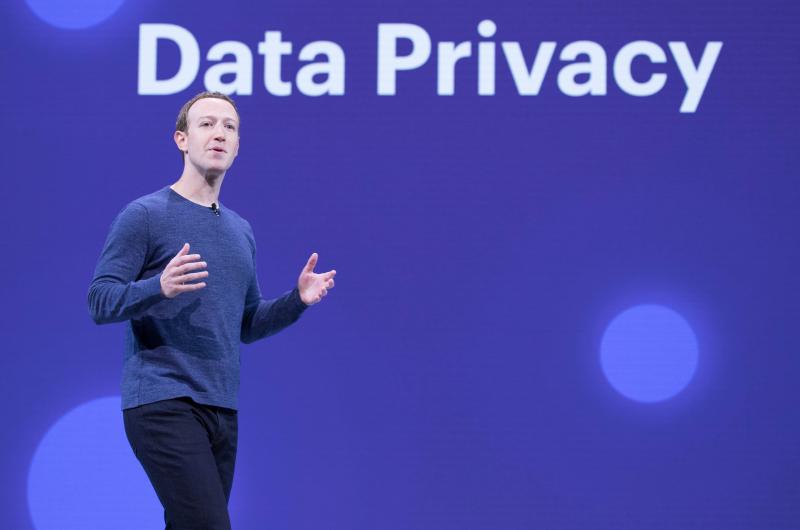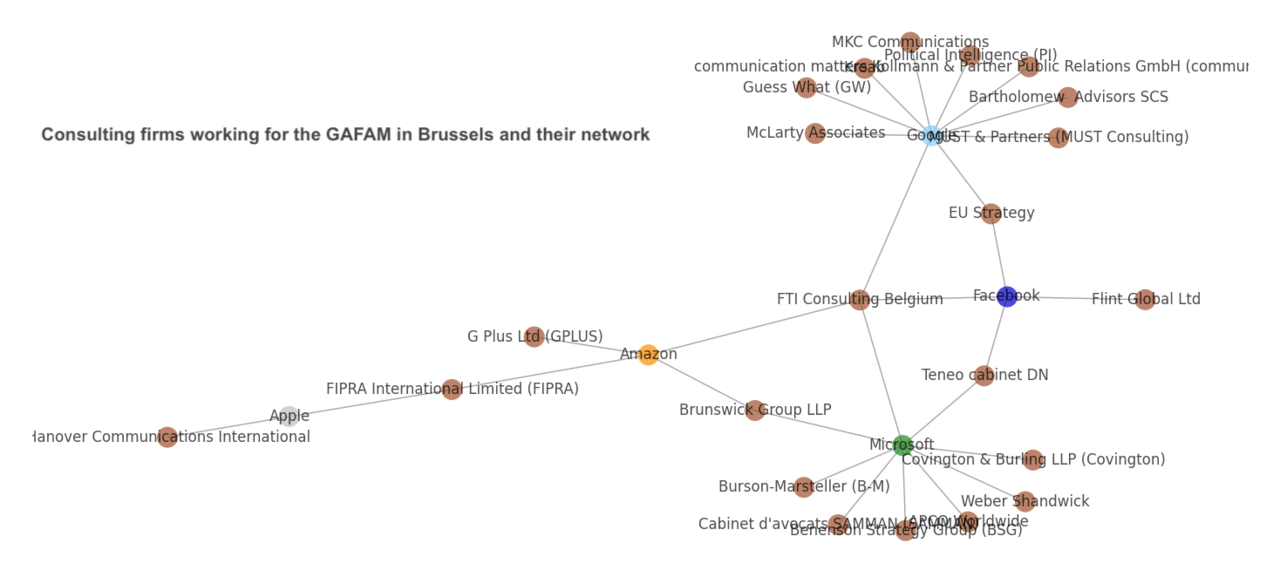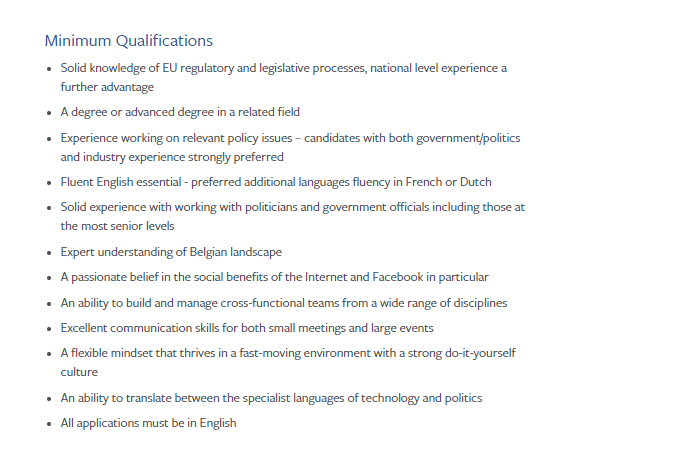
Post-scandal Facebook: will the EU stop treating the tech giant as a trusted partner?
Following the Cambridge Analytica affair and the massive leak of 87 million people’s data revealed earlier this year, Facebook is facing unprecedented scrutiny of its business model and especially its use of users’ personal data.
Update, February 2019: In an unprecedentedly in-depth report, the UK Parliament in February 2019 has drawn conclusions on Facebook's role in the spreading of disinformation online. It found the company acted like a “digital gangster” that considers itself “ahead of and beyond the law” & “misled” parliament. https://www.theguardian.com/technology/2019/feb/18/a-digital-gangster-de...
These scandals provide political momentum for new initiatives to better regulate Facebook and other tech giants. However, any action to protect digital rights is sure to face opposition from the well-resourced EU lobbying machine that Facebook and other big names from Silicon Valley have built up in Brussels over the last ten years.
So far, Facebook has managed to avoid public scrutiny in the EU. Last week’s news that the EU Parliament hearing of Facebook CEO Marc Zuckerberg would take place behind closed doors attracted so much criticism that the Parliament has eventually agreed to livestream the meeting.
Policy-makers will need to get tough and, above all, need to stop treating tech giants as policy partners, but as a sector with highly concentrated economic, social and politicial power which has the lobby operations to match it.
Easy access to policy-makers
During the past months, media and public attention on Facebook increased massively after the Guardian exposed that the social media platform had allowed third party company Cambridge Analytica to gather the data of at least 87 million users without their knowledge. Apparently, that personal data was then used to microtarget voters during the Brexit referendum and the US elections.
Following these revelations, a lot has been written about Facebook’s Brussels and Washington lobby spending. A recent update of the company’s EU lobby register entry showed a reported spending of 2,25 million euros on attempts to influence the EU institutions in 2017. Retrospective data available on Lobbyfacts.eu* reveals that this is almost double of its previous declaration (1,25 million euros in 2016), highlighting Facebook’s continually increasing investment in lobbying efforts. In the US, Facebook increased its lobby budget to record levels following the Cambridge Analytica scandal, spending 3 million dollars in just four months. Last year, the platform had declared spending 11,5 million dollars on in-house lobbying and over 1,6 millions hiring lobby firms.
In the EU, weaker lobby transparency rules unfortunately mean we will have to wait until next year to find out how much money Facebook is currently dedicating to undermine EU regulators’ reactions to the scandals.
What we do already know is that the US tech giant has enjoyed extremely easy access to EU policy-makers in the past years. Since late 2014 when information about the EU Commission’s top staff lobby meetings started to be made public, Facebook has had an impressive 92 meetings with Commissioners and top-level Commission staff. These coincided with some of the biggest developments around EU digital single market policies, such as ePrivacy, the GDPR, the audiovisual services directive and a digital taxation proposal, but also other EU initiatives, including efforts to get platforms to tackle terrorist content and fake news.
Facebook’s access seems to go above and beyond of what could be expected when looking at its (self-declared) lobbying budget. While 2,25 million euros get Facebook rank 19 on the list of corporation's biggest EU lobby budget, it ranks 4th among the corporations with the most lobby meetings at the Commission – only Google, Airbus and Microsoft have even greater access to top-level officials.
And yet, the real extent of their access though is likely much higher but there is no public information of its meetings with Commission officials below Director level. CEO recently filed a freedom of information request to get a comprehensive overview of Facebook’s access to and influence over the EU Commission. This would still exclude members of the European Parliament or Council.
Spreading Facebook’s message via intermediaries
While Facebook advertises its values as boldness, it follows the well-established practice of hiring or funding others to represent its interests. According to Lobbyfacts.eu, Facebook spends about 750.million euros a year on the lobby consultancy services of FTI Consulting (receiving at least €300,000), Teneo-Cabinet DN (at least another €300,000), Flint Global (at least €100,000) and specialised IT lobbyists EU Strategy (at least €50,000).
We do not know what exactly these organisations do for Facebook as they are not required to disclose this information in the Transparency Register, but these firms tend to be middle men in lobbying: developing lobbying strategies, digging up information on who to target and how, arranging meetings with policy-makers, coordinating coalitions and executing media charm offensives.
Lobby firms aren’t the only intermediaries acting on behalf of Facebook in Brussels. The tech giant is a member of an intricate network of associations representing the tech industry, including lobby heavy-weights the Computer and Communications Industry Association (44 meetings with Commissioners and top officials since 2014), European Digital Media Association (22 meetings since 2014) and the Interactive Advertising Bureau Europe (11 meetings since 2014), among others.
As a US company, Facebook is also a member of the American Chamber of Commerce EU, and as one of the worlds’ richest companies, it is one of the few individual members of the EU’s biggest business lobby group – BusinessEurope. This membership grants it the right to participate in the annual lobby-fest organised by BusinessEurope inside the Commission headquarters - an unparalleled privilege.
The network doesn’t stop there: Facebook is a member of an MEP-industry forum, the European Internet Foundation (EIF), which according to Sourcewatch invites only business lobbyists and EU Commission officials to closed meetings. Quote: "...and after the dinner was finished, the main parties sat down to continue working on a solution acceptable to all." The Forum was originally set up in 2010 by then MEPs James Elles, Elly Plooij-van Gorsel and Erika Mann, the latter of whom eventually went on to become Facebook’s EU spokesperson (see below).
Facebook also has a checkered past when it comes to financing front groups, having been caught funding the now defunct European Privacy Association in 2013, an industry lobby group that hid its connections to industry and posed as a civil society organisation or think-tank.

Image 1: European Data Journalism - https://www.europeandatajournalism.eu/eng/News/Data-news/Facebook-s-incr...
The European Data Journalism website has mapped Facebook’s network (see image 1) and found that “Facebook coordinates its actions within European institutions with other members of GAFAM [Google, Amazon, Facebook, Apple, Microsoft], as well as other giants of the digital and telecommunication sectors, by means of these associations”.
Recruiting through the revolving door
Facebook’s recent spending surge has also been reflected in the number of lobbyists it employs. In 2017, it declared an added five lobbyists (some of whom part-time) and requested two additional access badges for the European Parliament. In Washington, as a response to the Cambridge Analytica scandal and in the context of inquiries into Facebook’s role in Russian election interference, the social media giant went on a lobby hiring spree for 12 additional lobbyists.
In Brussels, Facebook is currently looking for three additional lobbyists. The company has also been looking for lobbyists in other EU countries, like the UK, Germany and Italy. Clearly, Facebook is getting ready to use lobbying to apprehend any fall-out from the scandals it is implicated in.
And the social media platform isn’t just hiring anyone to represent its interests. According to its own job adverts, the company is preferentially looking for Brussels-based lobbyists “with both government/politics and industry experience” and requires candidates to have “solid experience with working with politicians and government officials including those at the most senior levels”.

Image 2: Facebok ad for a public policy manager https://www.facebook.com/careers/jobs/a0I1H00000LCYaPUAX/
This target group for new hires is, of course, not new for Facebook. Former MEP Erika Mann moved from the European Parliament, where she had co-created the European Internet Forum (see above) to become lead EU lobbyist for Facebook in Brussels. She has since left for Covington & Burling (after some years at digital industry lobby group CCIA) , and has been replaced by Thomas Myrup Kristensen, who previously worked for the Danish Ministry of Science, Technology and Innovation. In Summer 2017, Facebook also hired Rachel Whetstone, often described as a former power broker of the British Conservative party, to lead its UK lobbying activities. In the US, only six of a total of 41 lobbyists declaring to work for Facebook in-house or via lobby firms do not have a revolving doors background.
Facebook’s revolving-door recruitments follow a wider hiring trend in the digital and tech industry, which Google has, perhaps, been using most infamously so far. This recruitment strategy is aimed to gain these relatively new lobby players quick access, know-how and influence they would otherwise be hard-pressed to obtain.
Policies against the public interest
With Facebook’s hefty lobbying presence in Brussels, it is worrying to see that its interests are at times directly opposed to those of EU citizens. This becomes very obvious just looking at the fight around the ePrivacy regulation, which has pitted publishers and online advertisers against citizens, NGOs and the EU’s Data Protection Office. Nothing less is at stake than the question of whether user consent is required before their personal data can be tracked and processed - a threat to the business model of Facebook and others whose revenue comes from facilitating targeted online advertising, made possible by tracking users’ browsing behaviour and analysing metadata as well as the content of their communications.
Facebook itself has not been publicly fighting the ePrivacy regulation, but, CEO’s research shows how organisations like the Interactive Advertising Bureau (IAB) Europe, the European Digital Media Association (EDiMA) and the Computer and Communications Industry Association (CCIA) – all of which Facebook is a member of - have been heavily lobbying the EU Institutions on the ePrivacy dossier in what a source from the European Parliament has called “one of the worst lobby campaigns I have ever seen.” Since the October 2017 vote in the European Parliament, the ePrivacy discussion has moved on to the Council, but member states seem to have been delaying this process: the Parliament’s lead MEP on the dossier has said that “member states are putting their foot on the brake and basically just acting on behalf of industry”.
Despite Zuckerberg’s recent claims to be endorsing EU digital protection rules like the General Data Protection Regulation, the truth is that the company’s direct and indirect lobbying has been opposing EU regulation initiatives, weakening their contents and delaying their approval. In a further hint at its double standards, Facebook, while praising the EU’s GDPR regulation, will now stop applying EU standards to its users in Latin American, African and Asian countries. We can only assume they will continue to work against any regulation that may affect their business model – in Brussels, across Europe and beyond.
Post-Cambrigde Analytica: will EU policy-makers stop treating Facebook as a policy partner?
Despite Facebook’s role as a massive lobbyist pushing policies that endanger the privacy rights of EU citizens, the EU Institutions and many member-state governments seem to have treated the company as a policy partner rather than a regulation subject. At this very moment, Facebook is a member of an official parliamentary intergroup on childrens’ rights and it is simultaneously a member of the Commission’s much publicised expert group on tackling fake news (alongside Google, Twitter and a few publishers).
In the same month as the Cambridge Analytica story broke, the expert group concluded its work and published its recommendations, which rely on industry self-regulation based on a Code of Practices and monitored by a “coalition representing the relevant stakeholders.” European Consumer Organisation BEUC had joined the group but voted against its final recommendations. As BEUC’s Director General Monique Goyens later told the Guardian, “If the commission is serious about fighting fake news it needs to address the fact that the advertising business model of big online platforms is an accelerant of the spread of disinformation.” Despite the misguided focus on self-regulation of social media platforms, the Commission’s final package for fighting disinformation incorporates the expert group’s conclusions.
Yet, this is not the first time public bodies such as the European Commission have tried to tackle complicated online issues simply by outsourcing the problem to corporations like Facebook or Google. Just look at what happened with the issue of online hate speech, on which Facebook, YouTube, Twitter, Microsoft, and Instagram signed a code of conduct. It is absurd that the Commission continues to rely on the self-regulation of tech giants concerning issues as sensitive as the spreading of disinformation and hate speech.
The EU still treats Facebook as a trusted partner and relies on it to voluntarily police its users and to decide how to tackle issues that deeply affect citizens’ lives and our democracies outside of binding regulation. Facebook’s other face, that of a massive multinational with a quasi monopolistic hold on people’s online interactions and therefore leverage over their personal data is often forgotten – even though the company’s own business model could aggravate the spread of misinformation and fake news, while its lobbying operations are geared towards keeping EU regulation at bay.
Tomorrow, Facebook’s CEO Mark Zuckerberg will finally come to Brussels for a meeting in the European Parliament. Members of the European Parliament (MEPs) were forced to wait several weeks for this hearing to be arranged, as Zuckerberg appeared to oppose a public hearing. The leaders of the European People’s Party and far-right parliamentary groups eventually settled for a behind-closed doors discussion between Zuckerberg and the heads of the Parliament’s political groups.
However, this decision was widely criticised. Green MEP Sven Giegold quickly launched a petition to make this meeting public that garnered over 20.000 signatures overnight. Leaders of the Greens, ALDE, GUE-NGL, Socialists and the EFDD in Parliament then demanded the meeting had to at least be webstreamed, which was confirmed only a day before the event.
And still, a discussion with group leaders does not equal a public hearing held in the appropriate Parliamentary committee. We can only hope that the few MEPs who will be present at the hearing will not also compromise on the topics covered by the discussion and that they will be ready to ask the necessary tough questions.
While EU policy-makers have slightly stepped up their rhetoric towards Facebook, they are yet to actually redefine their relationship with the platform: from a partner for whom cooperation rather than regulation is on the agenda to a corporate giant whose business model threatens our privacy and democracies and must therefore be reined in. It is high time for the EU to end the privileged access to and preferential treatment Facebook enjoys with policy-makers. Regulators must act in accordance to their task, spending less time with Facebook lobbyists and more time and energy protecting EU citizens and their digital rights.
* All Lobbyfacts data checked on 21 May 2018
